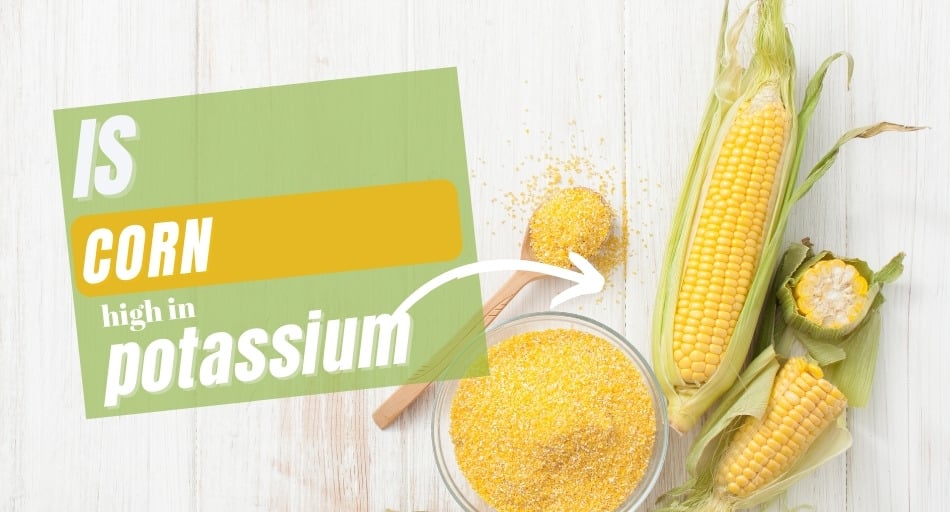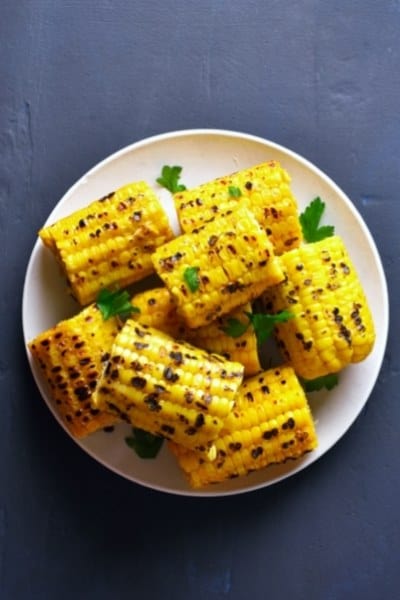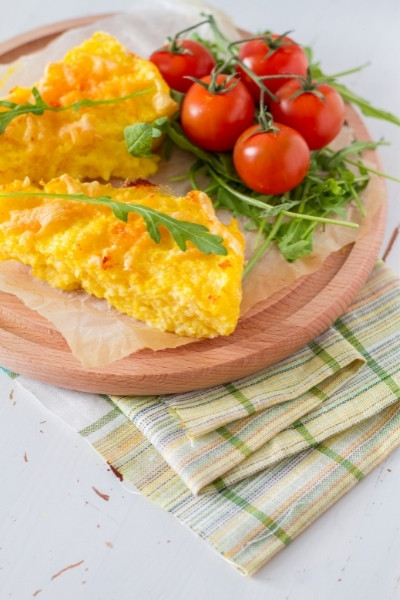Corn is a popular staple food is used to make flour, corn oil, popcorn, cornmeal, and many other products. It's grown in many parts of the world and is a major crop in the United States.

It's an extremely versatile food that can be enjoyed in many different ways - boiled, steamed, grilled, used in soups and stews, or processed further. The point is, no matter how you choose to enjoy corn, it is a healthy and nutritious food. But, is it high in potassium?
Table of Contents
Is Corn High in Potassium?
Corn is not a high potassium food. Potassium is an important mineral that is needed for many bodily functions. It helps to regulate blood pressure and fluid balance and is necessary for the proper functioning of the heart, muscles, and nerves.
There are many foods that are high in potassium and a person who wants to increase their intake of this important mineral can choose from many different options. Some good sources of potassium include bananas, avocados, spinach, and sweet potatoes.
Can You Check Your Potassium Level at Home?
How Much Potassium is in Corn?

There is a low amount of potassium in corn. A 3.5 oz serving of corn contains only about 287 milligrams of potassium. This is a very small amount and is not likely to have a significant impact on a person's overall intake of this mineral.
The daily recommended intake of potassium is 4,700 milligrams, so eating a one-cup serving of corn is not likely to have a significant impact on a person's overall intake of this mineral.
The majority of the potassium in a person's diet is likely to come from other sources. Cooking corn with other potassium-rich foods, such as spinach or beans, can increase the potassium content. Or, if you want to decrease its intake, consider skipping those foods as well.
Health Benefits of Corn
Corn is healthy food and has several benefits which include:
High-calorie food
Calories give the body energy to do what it needs to do. One cup of corn has about 160 calories. This is a good source of energy for people who are active.
The calories in corn come from the starch and fiber in the grain. Calories from starch are slowly digested and absorbed, which can help to regulate blood sugar levels.
Good source of fiber

Fiber is important for digestive health and can help to reduce the risk of diseases such as heart disease and type II diabetes. One cup of corn has about 3 grams of fiber.
This is a good amount of fiber and can help to meet the daily recommended intake. Fiber is also filling, so eating corn can help to control weight. It also helps in digestion by improving the movement of food down the alimentary canal.
Thiamin and vitamin B6
Corn is a good source of thiamin and vitamin B6. These vitamins are important for the health of the nervous system and the heart.
Thiamin helps to produce energy from food and vitamin B6 is necessary for the absorption of protein. This means that eating corn can help to meet the daily recommended intake of these important vitamins.
Rich in vitamin C
Corn is rich in vitamin C which is beneficial for the immune system. Vitamin C is also a powerful antioxidant that can help to protect the body against disease.

In the body, this vitamin helps to form collagen, which is important for the health of skin, bones, and blood vessels. The antioxidant properties of vitamin C can help to protect cells from damage.
Naturally gluten-free
People who have celiac disease or gluten sensitivity can eat corn without experiencing any negative side effects. Corn is a grain that is naturally gluten-free.
Gluten is a protein found in wheat, barley, and rye. People who have celiac disease or gluten sensitivity must avoid foods that contain gluten.
Can a Person with Kidney Diseases Consume Corn?
Yes, a person with kidney diseases can consume corn. Corn is a low-potassium food, meaning it has a low amount of potassium per serving.
This makes corn a safe choice for people with kidney diseases, who need to watch their potassium intake. In addition to being low in potassium, corn is also high in fiber and vitamin C. These nutrients can benefit people with kidney diseases by helping to keep them healthy and energized.
Can You Reduce the Amount of Potassium in Corn?

You can reduce the amount of potassium in corn by boiling it. When corn is boiled, the water-soluble potassium leaches out of the grain and into the cooking liquid.
This means that less potassium will be absorbed by the body when the corn is eaten. However, it is important to note that boiling corn also reduces the number of other nutrients, such as fiber and vitamin C.
If you are looking to reduce the potassium content of corn, it is best to soak the corn in water overnight before cooking. This will help to leach out more of the potassium.
Conclusion
Corn is a nutritious grain that provides a variety of health benefits. It is a good source of energy, fiber, thiamin, vitamin B6, and vitamin C.
Corn is also naturally gluten-free and can be eaten by people who have celiac disease or gluten sensitivity. While corn does not contain a high amount of potassium, it still contains 5 milligrams per serving which can contribute to a person's daily intake.
Corn can be boiled to reduce the amount of potassium, but this will also reduce the number of other nutrients present in the grain.
Don't know which foods are high in potassium? Read our article, 15 Best Food Sources of Potassium. We also have a guide to this important mineral: Potassium 101: All You Need To Know About Potassium.
